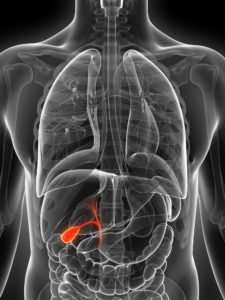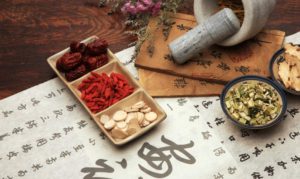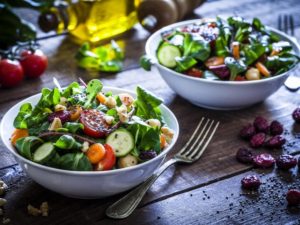Gallbladder disease is one of the most common and costly of all digestive diseases. You probably won’t be surprised that gallbladder removal is the most frequently performed surgery in America, and over half a million gallbladders are removed each year.
Gallbladder attack and symptoms

3d rendered illustration of the male gallbladder
The gallbladder is the holding tank for bile to be used for processing fats and oils. The thing that leads many people to the removal of their gallbladder, is the buildup of gallstones. Cholelithiasis (gallstones) happen when the bile produced in the liver gets hardened before it can be passed out of the gallbladder to be used. Cholelithiasis is often accompanied by cholecystitis (inflammation of the gallbladder).
When someone is experiencing gallbladder problems or a gallbladder attack, they may experience any of the following symptoms: moderate to severe right side of the ribcage pain; pain that radiates through the back or the right shoulder; severe upper abdominal pain; nausea; vomiting; gas; anger; burping or belching. Attacks often occur at night. They sometimes occur after overeating, and pain will often, but not always, follow a meal with fats or grease food. Pain will often worsen with deep inhalation, and attacks can last from minutes to hours.
When patients started to have gallbladder attacks, because the pain was so intense, and the surgeons were so very convincing…Most patients rushed to make a decision for gallbladder removal. When the gallbladder is removed, we trade one problem for other ones. Definitely the liver becomes more compromised. The gallbladder has a regulating effect on bile secretion, and without the gallbladder, bile is continually dumping into the intestinal tract when it’s not needed, and only a minimal amount when it is needed. And this can result not only in digestive disturbances, but also nutritional deficiencies. So the gallbladder plays an important role. Can we live without it? We can. But how are we living? Removing the gallbladder does not solve the problem. It just eliminates the symptoms, and only temporarily.
Chinese medicine treatment

Many patients come to my office in search of ways to avoid having their gallbladders removed. Just because you have gallstones or inflammation of the gallbladder, does not mean you should rush right out and have it removed. Cholelithiasis and cholecystitis are two conditions that are treated very successfully with herbs, diet modification and acupuncture.
I have been using Chinese herbs for gallbladder disease and they worked very well.
The main mechanisms of action of herbs are to dissolve and expel stones from the gallbladder and bile duct, decrease inflammation, and reduce pain. Depending on the number and size of the stones, the duration of treatment ranges from weeks to months. Some patients poop multiple stones out in the first week of taking herbs. Most patients have no more gallbladder attack when they are taking the herbs. If a stone gets stuck in the bile duct or the Oddi sphincter, emergency surgery is generally required. A two to three month treatment protocol is usually required.
Diet Support
Addressing the diet is the most importance when healing the gallbladder. Let’s take a good look at some of the top factors that contribute to the hardening of the bile into those gallstones.
- A diet that’s too high in fat or oxidized oils (and oxidized oils are those that are heated beyond their heat point, so it’s not just fried oils, but could even be the excessive use of olive oil at high heat where it’s being oxidized).
- Food sensitivities, particularly egg and dairy. Those can lead to the production of gallstones. A 1968 study revealed that 100% of a group of gallbladder patients were free from symptoms while they were on a basic elimination diet. This study suggested that the ingestion of allergy-causing substances causes swelling of the bile ducts, resulting in the impairment of bile flow from the gallbladder, and the reduced flow leads to an increase in stone formation.
- Foods inducing symptoms in decreasing order of their occurrence were: egg, pork, onion, fowl, milk, coffee, corn, beans, and nuts. And adding eggs back to the diet, for example, caused a gallbladder attack in 93% of the patients. At a minimum, an egg-free trial period of several months could be worthwhile.
- Not enough stomach acids. If the food leaving the stomach isn’t sufficiently acidified, then it won’t trigger the gallbladder to release bile, and this leads to the decreased bile excretion.
- Too little fiber affects our ability to release the bile and exacerbates the ability to create gallstones.
Besides diet, during stress our bodies are in fight or flight mode, and this means that many other functions, such as digestion particularly, shut down. This can lead to reduced secretion of bile, leaving it to concentrate in the gallbladder and form those stones. Of course poor and impaired liver function can lead to the production of stones, and there’s more and more correlation between the occurrence of hypothyroidism and gallstone formation, too.

During this process it is very important to avoid foods high in saturated fats and cholesterol, such as heavy meats, dairy and eggs. I recommend leaning toward a vegetarian diet during this time and drink enough water. Customized liver and gallbladder cleanses and flushes are recommended under my supervision.
.